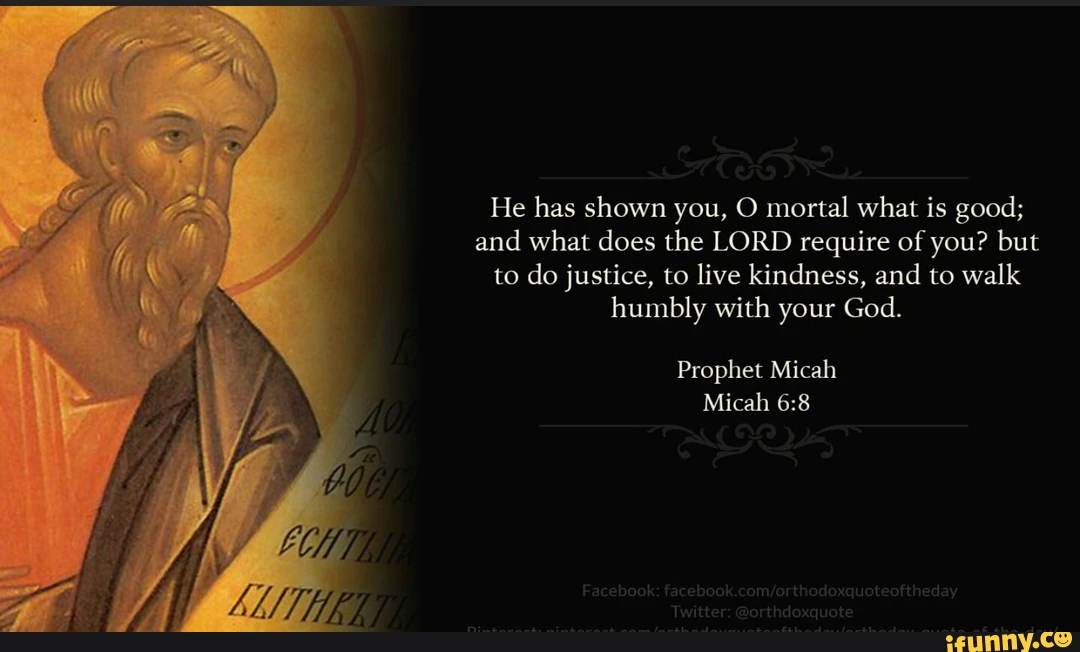BACKGROUND
Micah 6-7 contains the third message of the book and is a courtroom scene. God has an indictment against His people and calls on the witnesses of the mountains and the hills to listen to His case.
First, He recounts what He has already done for them by bringing them out of slavery in Egypt, recalling the story of Balak and Balaam in Numbers 22-24, and His instructions to them before entering the land He had promised them (Joshua 2:1; 4:19; 5:3-9). The people had forgotten the covenant they made with Him and turned away from God. Yes, they practiced the rituals, but their hearts were not worshipful. True worship should include acting justly, loving mercy, and walking humbly with their God (Micah 6:8).
Because of God's justice, He would have to punish the nation. They had not acted justly or loved mercy by gaining wealth illegitimately (Proverbs 10:2), cheating customers, and taking advantage of them. Judah also followed the statutes of Omri and Ahab who were two of the worst kings of the Northern Kingdom of Israel (1 Kings 16:21-22:40). The captivity would be their punishment.
Micah 7 begins in utter darkness and gloom (7:1-6) as Micah bemoans the nation's sins, but it ends in hope (7:8-20) as he and the godly remnant waited in hope for salvation after the judgment. Out of the darkness, a light would come because God forgives sin and delights to show mercy (7:9, 18).
REFLECTION/APPLICATION
People have tried all kinds of ways to please God (6:6, 7), but God has made his wishes clear: he wants his people to be just, merciful, and to walk humbly with him. In your efforts to please God, examine these areas on a regular basis. Are you fair in your dealings with people? Do you show mercy to those who wrong you? Are you learning humility? (The Life Application Bible, p. 1576)PRAYER
Recenter and Relax Yourself
Recenter your scattered senses on the presence of God. Still your mind, heart, and body. Let go of all other distractions. Relax in His presence and attend to Him. I usually read it again at the beginning of each step.
Read the Passage (Lectio)
Read slowly and attentively, followed by a time of silence.
Read it again and...
Reflect on it (Meditatio)
Listen for a word or phrase that shimmers for you. In what way does it touch your life? Let thoughts surface that connect the text to your life.
Read it again and...
Respond to God (Oratio)
Converse with God about the word or phrase and what it has triggered. Think of God in the second person (“you”). Tell God what you are thinking and feeling. Be honest! What do you want of God? What help do you need?'
Read it again and...
Rest in Him (Contemplatio)
Rest in God’s presence. Be silent and without words. Move on when you are ready.
(Note: Praying Scripture has nothing to do with “getting through” passages; it has everything to do with letting the meaning sink into your life.)
Take a word or phrase with you and repeat it as you perform your daily activities.

I also love how this is a central verse when studying the Justice stream in the great book The Reservoir by Renovare.
ReplyDelete